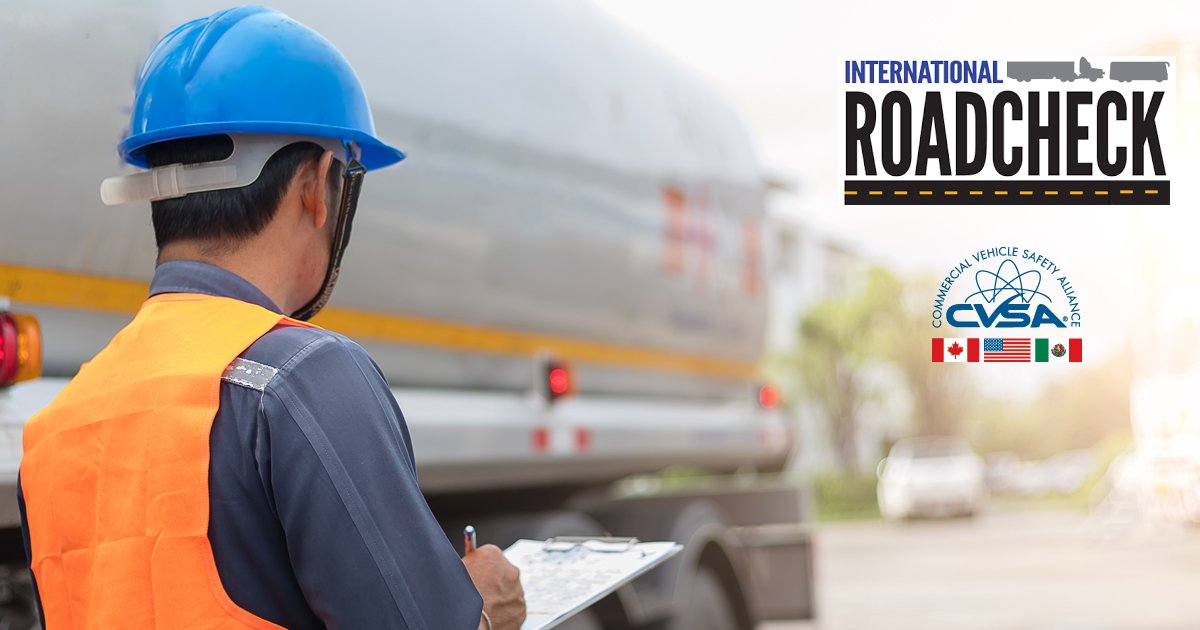Know the Difference Between a "Defect" and a "Safety Sensitive Defect"
When it comes to ensuring road safety, the importance of thorough vehicle inspections cannot be overstated. For commercial drivers, conducting a pre-trip and post-trip inspection is not just a best practice—it's a legal requirement set forth by the Federal Motor Carrier Safety Regulations (FMCSR). Despite clear guidelines, confusion often arises regarding what exactly constitutes these inspections. In this blog post, we’ll break down the essentials of pre-trip inspections, highlighting the critical checks every driver must perform to guarantee that their vehicle is in safe working order before hitting the road. Let’s navigate through the regulations and clarify what should be on every driver’s checklist to promote safety and compliance.
Read, share, and/or print this week's Safety Bulletin.
Check out past Idealease Safety Bulletins.
The Driver’s Daily Vehicle Inspection Report (DVIR) is an essential responsibility for drivers, aimed at safeguarding themselves, other road users, and the vehicles they operate. Drivers need to recognize the difference between a general defect and a safety-sensitive defect.
To ensure clarity, drivers and technicians need to be aware of the Federal Motor Carrier Safety Regulations (FMCSR) found in CFR 399 Appendix G, which outlines safety-sensitive defects—issues that could cause a vehicle to be deemed out of service during pre- or post-trip inspections.
Furthermore, the FMCSA provides additional guidance for CFR 396.11:
Driver Vehicle Inspection Reports
Driver’s Daily Vehicle Inspection Process
This procedure is mandated by the FMCSR to confirm that vehicles are in safe working order. An essential aspect of a driver's daily routine is to conduct an inspection of the commercial vehicle they are operating. Over time, there has been some confusion about the requirements for pre-trip and post-trip inspections.
Let's begin with the pre-trip inspection. According to FMCSA regulations (CFR 396.13), drivers must perform the following checks before operating a motor vehicle:
- Be satisfied that the vehicle is in safe operating condition.
- Review the last driver’s vehicle inspection report.
- Sign the report—only if the driver prepared the report—to acknowledge they have reviewed it and certify that the required repairs have been performed and any noted defects or deficiencies addressed. Note: The signature requirement does not apply to listed defects on a towed unit that is no longer part of the vehicle combination.
Although the pre-trip inspection does not require documentation by regulation, it’s a good idea. I recommend flagging the pre-trip inspection on the driver’s record of duty status in the “Grid” section.
FMCSA 49 CFR 396.11 requires every driver to prepare a written report (DVIR) at the end of each workday for every vehicle operated. This report must cover the following parts and accessories:
- Service brakes, including trailer brake connections
- Parking (hand) brake
- Steering mechanism
- Lighting devices and reflectors
- Tires
- Horn
- Windshield wipers
- Rear vision mirrors
- Coupling devices
- Wheels and rims
- Emergency equipment
The report must identify any defect or deficiency affecting safe vehicle operation, or that could lead to a mechanical failure. If no defects are present, this must also be indicated on the DVIR. The driver must sign the DVIR upon completion.
If any defects or deficiencies are identified, the motor carrier is obligated to rectify or arrange for the resolution of these issues before the vehicle can be operated. However, not all issues must be addressed—only those outlined in FMCSR Appendix G that directly impact safe vehicle operation.
Technicians, drivers, and service managers should familiarize themselves with Appendix G to understand which defects must be corrected. The DVIR must also be signed by the technician who performed the repairs, a requirement for all copies of the DVIR. Drivers are required to keep the previous day’s DVIR in the vehicle, and motor carriers must maintain all DVIRs for 90 days.
If you haven’t yet reviewed Appendix G of FMCSA CFR 399 with your drivers, consider incorporating this topic into your next safety meeting:
Appendix G – Minimum Periodic Inspection Standards
Do your drivers need training in performing pre-and post-trip inspections?
English:
- Straight Truck: https://youtu.be/rsUTQrN-514
- Tractor Trailer: https://youtu.be/9TL62H5yUQA
Spanish:
- Straight Truck: https://www.youtube.com/embed/SDvbuAuKQLM
- Tractor Trailer: https://www.youtube.com/embed/529XGiJxTfU
Commercial Vehicle Safety Alliance (CVSA) Driver Tip Sheet
The CVSA has published a “cheat sheet” to help carriers and drivers prepare for this year’s Roadcheck. It includes key points for both vehicle and driver inspections. Feel free to print it out and use it as a handout for your drivers.
International-Roadcheck-Vehicle-Inspection-Cheatsheet.pdf
NAS-Driver-Inspection-Cheatsheet.pdf
Best Practice Guidelines for Roadside Inspections:
- Train drivers to conduct thorough and high-quality pre-trip inspections to minimize the risk of violations.
- Review your CSA scores monthly at www.ai.fmcsa.dot.gov by entering your DOT number or company name.
- Analyze both vehicle and driver BASICs, cross-referencing your inspection records with the reports submitted by drivers, and follow up with those who have not submitted reports.
- Use the “Carrier History” tab under the Tools/Resources section of your FMCSA portal home page to monitor inspection trends.
- Discuss inspection outcomes and any violations with your maintenance provider to help prevent recurring issues.
- Keep copies of all roadside inspection reports in your tractor.
Question of the Week
Question: My driver has gone through a roadside inspection; how long do I have to keep this documentation on file?
Answer: Copies of all roadside inspections are to be kept by the motor carrier for 12 months. The driver is required to turn in the inspection to the motor carrier within 24 hours. If they are not going to return to the terminal, they are to mail in the inspection. If the inspection results in violations, they are to be corrected or repaired, and the inspection form is to be signed and certified that the repairs were completed and sent back to the state of inspection within 15 days.
International Roadcheck 2025 May 13-15
The Commercial Vehicle Safety Alliance (CVSA) International Roadcheck is scheduled for May 13–15.
This annual program is a prominent enforcement event aimed at ensuring compliance with regulations governing commercial motor vehicles throughout Canada, Mexico, and the United States.
Over a span of 72 hours, law enforcement officials certified by the Commercial Vehicle Safety Alliance (CVSA) will carry out inspections at weigh stations, designated temporary inspection sites, and through mobile units. These checks are designed to confirm adherence to federal, state, provincial, and territorial regulations. The information gathered will later be analyzed and shared in the summer.
through mobile units. These checks are designed to confirm adherence to federal, state, provincial, and territorial regulations. The information gathered will later be analyzed and shared in the summer.
Each year, the International Roadcheck emphasizes a specific focus area. For 2025, the areas of focus will be:
- Tractor protection systems
- Alcohol and controlled substance possession
The possession and use of controlled substances and alcohol remain significant issues for carriers, drivers, and the broader public. The increasing number of drivers recorded in the U.S. Drug and Alcohol Clearinghouse (DACH) is a concerning trend that poses a risk to roadway safety across North America.
During Roadcheck, inspectors will conduct the North American Standard Level I Inspection, which is a thorough, 37-step process that includes an in-depth assessment of vehicle components and a review of driver credentials and documentation.
Registration is now open online for the 2025 Idealease/NPTC Spring Safety Seminars!
Idealease and the National Private Truck Council NPTC will again be hosting safety seminars in the spring and fall of 2025. The one-day seminar this year will focus on basic safety and compliance, regulation changes and CSA. The seminars and will be provided to all Idealease customers, potential customers and NPTC members at no charge. The seminar provides important information applicable for both the novice and experienced transportation professionals.
Spring Seminars 2025
- 4/29/2025 – San Leandro, CA
- 5/1/2025 – Portland, OR
- 5/6/2025 – Hollywood, FL
- 5/8/2025 – Harrisburg, PA
- 5/13/2025 – Columbia, SC
- 5/15/2025 – Tampa, FL
To register for an upcoming spring seminar in 2025, click on the following link:
Safety Seminar Registration
Note: Fall seminars will be announced in a later bulletin.
*The Idealease Safety Bulletin is provided for Idealease locations and their customers and is not to be construed as a complete or exhaustive source of compliance or safety information. The Idealease Safety Bulletin is advisory in nature and does not warrant, guarantee, or otherwise certify compliance with laws, regulations, requirements, or guidelines of any local, state, or Federal agency and/or governing body, or industry standards.
